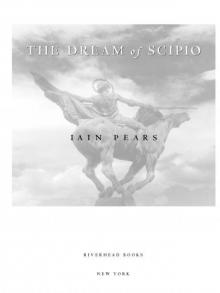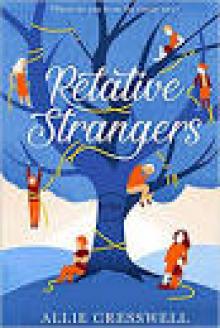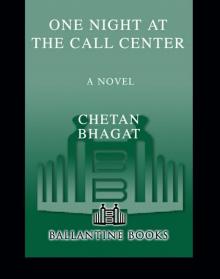The Dream of Scipio


Author: Iain Pears
Category: Fiction
Published: 2002
Series:
View: 598
Read OnlineThree narratives, set in the fifth, fourteenth, and twentieth centuries, all revolving around an ancient text and each with a love story at its center, are the elements of this ingenious novel, a follow-up to the bestselling, An Instance Of The Fingerpost.
"May well be the best historical mystery ever written," proclaimed The Sunday Boston Globe about Iain Pears's An Instance of the Fingerpost, while Booklist called its publication "a major literary event." Iain Pears's international bestseller was greeted with front-page reviews ("A crafty, utterly mesmerizing intellectual thriller"--The Washington Post Book World), named a New York Times Notable Book, and hailed as a Book to Remember by the New York Public Library. Now he returns with a greatly anticipated novel that is so brilliantly constructed, the author himself describes it as "a complexity."
The centuries are the fifth (the final days of the Roman Empire); the fourteenth (the years of the Black Death); and the twentieth (World War II). The setting for each is the same--Provence--and each has at its heart a love story. The narratives intertwine seamlessly, but what joins them thematically is an ancient text--"The Dream of Scipio"--a work of neo-Platonism that poses timeless philosophical questions. What is the obligation of the individual in a society under siege? What is the role of learning when civilization itself is threatened, whether by acts of man or nature? Does virtue lie more in engagement or in neutrality? "Power without wisdom is tyranny; wisdom without power is pointless," warns one of Pears's characters.
"May well be the best historical mystery ever written," proclaimed The Sunday Boston Globe about Iain Pears's An Instance of the Fingerpost, while Booklist called its publication "a major literary event." Iain Pears's international bestseller was greeted with front-page reviews ("A crafty, utterly mesmerizing intellectual thriller"--The Washington Post Book World), named a New York Times Notable Book, and hailed as a Book to Remember by the New York Public Library. Now he returns with a greatly anticipated novel that is so brilliantly constructed, the author himself describes it as "a complexity."
The centuries are the fifth (the final days of the Roman Empire); the fourteenth (the years of the Black Death); and the twentieth (World War II). The setting for each is the same--Provence--and each has at its heart a love story. The narratives intertwine seamlessly, but what joins them thematically is an ancient text--"The Dream of Scipio"--a work of neo-Platonism that poses timeless philosophical questions. What is the obligation of the individual in a society under siege? What is the role of learning when civilization itself is threatened, whether by acts of man or nature? Does virtue lie more in engagement or in neutrality? "Power without wisdom is tyranny; wisdom without power is pointless," warns one of Pears's characters.
 Breaking South: A Turner Artist Rocker Novel (The Turner Artist Rocker Series Book 3)
Breaking South: A Turner Artist Rocker Novel (The Turner Artist Rocker Series Book 3) Dandelion Wine (Green Town 1)
Dandelion Wine (Green Town 1) Ariel Custer
Ariel Custer Maktub
Maktub The Nice and the Good
The Nice and the Good Relative Strangers
Relative Strangers One Night at the Call Center
One Night at the Call Center The Stanislaski Series Collection, Volume 1
The Stanislaski Series Collection, Volume 1